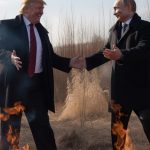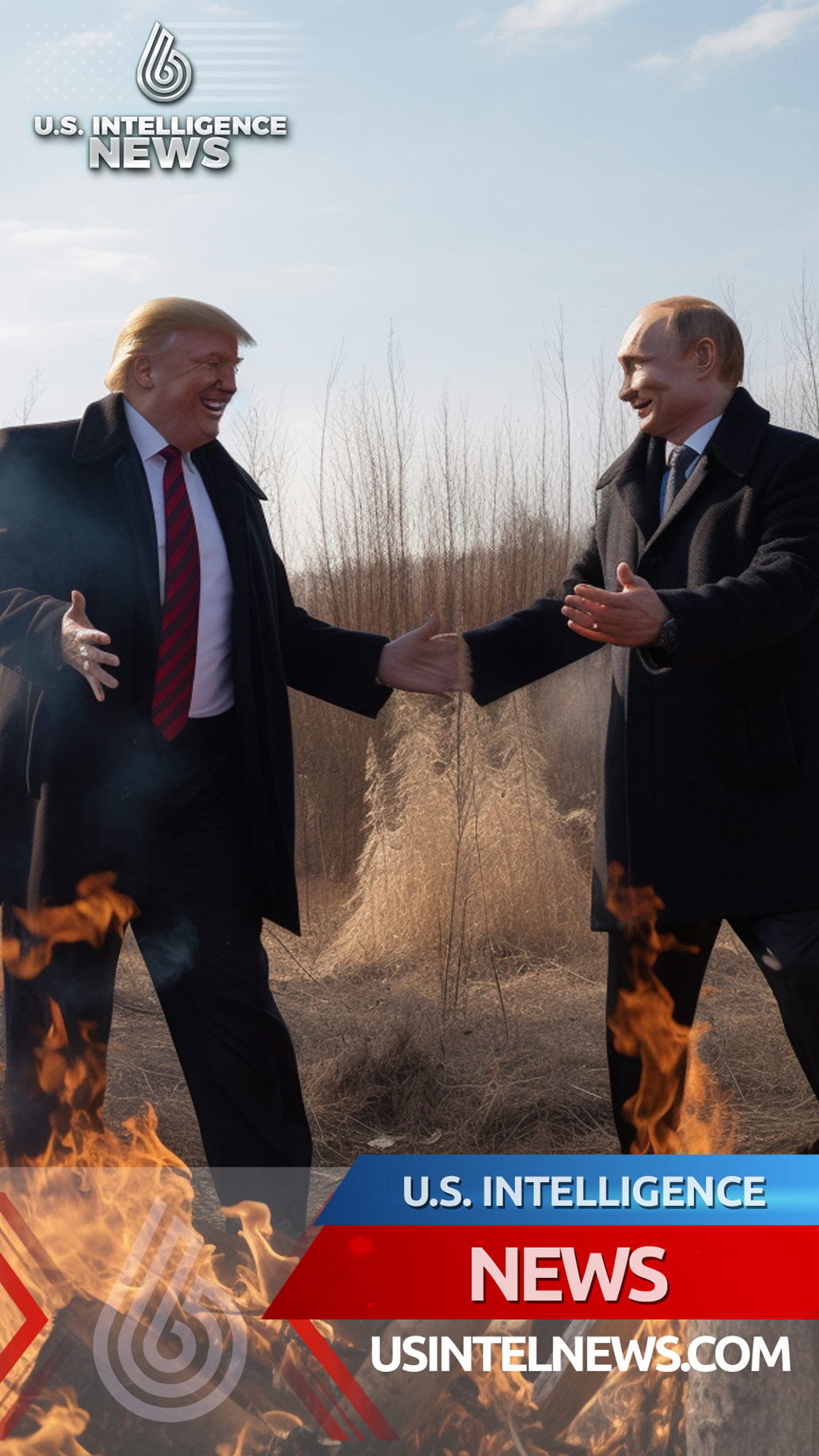
The U.S. Intelligence Community
Via Teleconference
4:35 P.M. EDT
MODERATOR: Great. Thank you so much. Thanks, everyone for joining. I’ll let our speakers go ahead and get started.
But for your awareness, this call is on background, attributable to “senior administration officials,” and it is embargoed until the end of call.
For your awareness, not for attribution, the speakers on the call today are [senior administration official], [senior administration official], [senior administration official], and [senior administration official].
With that, I’ll turn it over to [senior administration official] to get us started.
SENIOR ADMINISTRATION OFFICIAL: Great. Thanks, [Moderator]. And thanks to everybody that’s on the line right now for your interest in the second Summit for Democracy, which President Biden officially kicked off this morning with his four co-hosts: President Chaves of Costa Rica, Prime Minister Rutte of the Netherlands, President Yoon of the Republic of Korea, and President Hichilema of Zambia.
As [Moderator] mentioned, I’ll just kick us off with an overview of the summit and the President’s engagement and announcements today. It should say a little bit by way of our agenda on advancing technology for democracy.
Then I’ll hand over the floor to [senior administration official], who will lay out in more detail what we consider to be some of our cornerstone technology-focused initiatives under our efforts to counter the proliferation and misuse of technology.
And then lastly, we’ll go to [senior administration official] to highlight a few of the other key announcements on the technology front.
So just by way of overview of the summit: Over the course of the day today, we heard, in total, from 85 world leaders on issues related to how they’re working to bolster democratic institutions and protect human rights and fight corruption. And additionally, how democracies are in need to continue to work together when it comes to the many major challenges facing the world on everything from Russia’s aggression in Ukraine, to combating the climate crisis, to food security, and so on.
President Biden used his remarks to make the case for how, here in the United States, we’re still doing big things when it comes to things like rebuilding infrastructure and tackling the climate crisis through legislation and creating jobs.
And President Biden also used his remarks to make three announcements related to the summit’s themes on the foreign policy front.
First, he announced that we are reinvesting in the summit’s flagship deliverable, which is entitled the Presidential Initiative for Democratic Renewal, with $690 million in new funding. President Biden launched the Presidential Initiative for Democratic Renewal at the first Summit for Democracy in December of 2021, with an initial investment of just over $420 million. So, today’s figure highlights a significant addition.
The presidential initiative is essentially an umbrella, and it includes foreign assistance and policy steps that the U.S. government is taking both unilaterally, in some instances, and in conjunction with international partners in five categories of work that we deem essential to strengthening democratic renewal abroad. And those are supporting free and independent media, fighting corruption, bolstering human rights and democratic reformers, advancing technology for democracy, and defending free and fair elections.
Second, the President announced that he welcomed the Republic of Korea’s offer to host a third summit for democracy at some point in the future. And President Biden and President Yoon of South Korea issued a joint statement on this agreement early this morning, D.C. time.
And third, the President noted that through the Summit for Democracy, we’re really leaning into our agenda on ensuring that technology works for and not against democratic societies.
And to drive that point home, tomorrow, Secretary of State Antony Blinken will be joined by Secretary of Homeland Security Ali Mayorkas; USAID Administrator Samantha Power; our Director of National Intelligence, Avril Haines; and the Office, here at the White House, of Science and Technology Policy Arati Prabhakar; as well as members of Congress, senior foreign government officials, and leading business figures and researchers and advocates on and — at an event on this issue hosted at the Washington Convention Center.
This will be our contribution on behalf of the U.S. government to what is entitled the summit’s “co-host day.”
Tomorrow, each of our four summit co-hosts — again, Zambia, Costa Rica, the Netherlands, and South Korea — will likewise be hosting in-person ministerial-level events in their capitals on other themes essential to well-functioning, liberal democracy.
In advance of tomorrow’s event, the White House put out a factsheet today that summarizes the new initiatives that we’re undertaking on our tech agenda. And we’re hoping to use this call to flesh that out a little bit.
This agenda recognizes that to harness technology in a manner that supports democratic values and institutions, the United States and other democracies need to do three things.
First, they need to put forward an affirmative vision of what they stand for: persuasive rights-respecting view of how technology can enable individual dignity and economic prosperity.
Second, what they stand against, which is the misuse and abuse of technology to repress, control, and discriminate.
And thirdly, democracies need to continue looking ahead so as to align emerging technologies, such as artificial intelligence, with respect for democratic principles and human rights.
And so, as our factsheet indicates, we bend our work into these three areas: the affirmative agenda, how we’re countering misuse and the rise of digital authoritarianism, and how we’re looking ahead.
So, I’ll hand over to my counterparts to say a little bit more about those areas and firsthand to [senior administration official] to speak in particular about some of the work we’re undertaking under the category of countering the misuse of technology.
So, with that, [senior administration official], I’ll hand over to you.
SENIOR ADMINISTRATION OFFICIAL: Thanks, [senior administration official]. And thanks, everybody.
So, one of the areas that we have really honed in on in particular is the proliferation and misuse of commercial spyware.
And we’ve got a number of initiatives that we were able to unveil before and that we will be unveiling as part of the summit that address what we view as the multifaceted challenge posed by the proliferation and misuse of commercial spyware, both in terms of hard national security concerns with regard to counterintelligence and security risks to our personnel and their families, but also with regard to our partners and then also with regard to the misuse abroad to facilitate human rights abuses.
So as many of you may have seen in his speech today, the President addressed the threat of commercial spyware directly. And he highlighted, in particular, an action we took and we unveiled on Monday, which is an executive order that President Biden signed that would restrict for the first time use of commercial spyware if it poses risks from a counterintelligence or security perspective, or in terms of misuse, for example, to facilitate human rights abuses.
So we’ve taken a number of initiatives in this space to address in one case — on the one hand, misuse, for which we have now established robust guardrails for the United States through the executive order; the proliferation of these tools through export controls, including placing commercial spyware vendors on our Department of Commerce Entity List; the development of these tools, for which we have both export controls to restrict and prevent the sale of software technologies and goods that could lead to the development of these tools, but also restrictions on the ability of members of — or officials from the U.S. intelligence community who may seek work abroad after leaving government service, for which our Office of the Director of National Intelligence issued just last week new binding guidance to implement statutory restrictions on the ability of intelligence community professionals to go work for foreign entities abroad.
And then, finally — and we’re very proud to announce a new diplomatic initiative on commercial spyware, which is also referenced in the factsheet that was released earlier today, which is a joint statement on efforts to counter the proliferation and misuse of commercial spyware.
We are going to be joining an initial group of now 10 additional partners in endorsing the joint statement, which is the first time and the first opportunity to really deepen international cooperation on countering the proliferation and misuse of commercial spyware.
Now, the initial group of partners includes Australia, Canada, Costa Rica, Denmark, France, New Zealand, Norway, Sweden, Switzerland, the United Kingdom, and, of course, the United States.
And this is really a novel initiative to underscore that we jointly view the threat and the risk posed by the misuse of commercial spyware the same way that we agree on the need for strict domestic and international controls on the proliferation and use of this technology.
We will be releasing the joint statement tomorrow as part of the U.S. co-hosted event.
And on that note, let me turn over to [senior administration official] to explain that further.
SENIOR ADMINISTRATION OFFICIAL: Thank you, [senior administration official].
The two initiatives that [senior administration official] just outlined in more detail are part of a broader package of commitments that we’re making dedicated to countering the misuse of technology and the rise of digital authoritarianism, which is one of the three buckets that [senior administration official] outlined that will be highlighted at the event tomorrow and reflect the administration’s approach to technology for democracy.
In addition to the EO and the joint statement, we are also going to be stepping up our support for organizations and people that may be targeted with spyware and other cyberattacks — so the potential victims.
The U.S. Cybersecurity and Infrastructure Security Agency — or CISA, as it’s commonly known — has launched a new initiative to better protect organizations within the United States that are at risk of being targeted by transnational repression.
This will fill an important gap in that the State Department’s activity in this space to date were focused on supporting organizations abroad against these threats.
Other countries have witnessed a similar rise in transnational attacks on activists, so CISA is also partnering with its counterparts, other national cybersecurity centers, to deepen international cooperation on how to better protect those at risk within their borders.
The initial participants in this work include the United Kingdom, which would co-lead this effort, Australia, Canada, Denmark, Estonia, France, Japan, New Zealand, and Norway.
I’d like to briefly highlight two other important initiatives that focus on technology more broadly in this bucket of countering the misuse of technology and the rise of digital authoritarianism.
First is: The United States is proud to join the other members of the Freedom Online Coalition to release the guiding principles for government use of surveillance technology, which we will publish tomorrow. And these guiding principles outline that any government that wants to adhere to democratic principles and human rights can use such technology in a responsible manner. And it contrasts with those governments that do not.
And we are delighted that over 40 summit participating states have already endorsed the principles at this point.
In addition to the focus on what responsible government behavior looks like, we also want to make sure that the goods and services that leave our borders do not unintentionally contribute to digital authoritarianism abroad.
That is why we’re delivering on our commitment at the first summit and have developed a code of conduct that is designed to better integrate human rights criteria in our export control regime and those of the other 20 countries that have already endorsed it.
You can find more details about this in the White House fact sheet that was released today, and the individual documents will be released tomorrow ahead of the event.
To briefly highlight a few key announcements that fall into the other two buckets of the three themes that [senior administration official] outlined at the beginning:
Within the first bucket, focusing on our affirmative vision for a free and open Internet and making sure everybody has access, the President is making sure that we are meeting the — that we are meeting the increased demand for anti-censorship technologies and that sufficient funding is available to expand access to such technologies.
We’ve also announced a new funding package to strengthen the government of Costa Rica’s cybersecurity, which is an example of our broader efforts to build capacity to increase cyber resilience.
In addition, the Treasury is committing to update its general licenses across relevant sanctions regimes to ensure that communications technology is available to people in sanctioned countries so that they can communicate with each other and with the outside world.
With respect to the third bucket, and to just close this out — the third bucket is focusing on shaping emerging technologies to align with democratic principles and human rights. The White House Office of Science and Technology Policy has released a National Strategy to Advance Privacy-Preserving Data Sharing and Analytics, which builds on the blueprint for an AI bill of rights that the White House released last year, as well as the new AI risk-management framework that the Department of Commerce and NIST launched in January.
So tomorrow’s discussion will bring together a unique set of speakers, including the OSTP director, the CEO and co-founder of Anthropic, and the executive vice president of the European Commission, alongside two prominent civil society advocates.
So this hopefully gives you a sense of the — of the breadth of the commitments the administration is announcing today and demonstrates that this is truly an effort across departments and agencies, which reflects the administration’s belief that strengthening and defending democracy at home and abroad must be a whole-of-government effort.
And with that, I’m turning it back to you, [senior administration official].
SENIOR ADMINISTRATION OFFICIAL: Thank you. Moderator, I think we’re ready to take a couple questions.
Q Hi, thank you. Thanks a lot. I wonder — it’s a little bit separate from what you guys have just spoken about, but there’s a governmental declaration that’s come out via the State Department from the summit. And, yeah, I wanted to get your comment on, basically, why is that — at the moment, I can only see the endorsements from 73 countries. I believe you said 85 leaders spoke today, and 120 countries were initially invited to the summit. So — so, you know, why so few countries signing up? And you’ve also got 12 countries registering disagreement with part of the text.
So, you know, is there — is there a sense of disappointment that you’re unable to get, you know, full agreement from everyone involved in the summit to, you know, a statement that is not, you know, particularly controversial, from my reading?
SENIOR ADMINISTRATION OFFICIAL: Thanks for that, Simon. So, yes, the — we just issued the declaration. No, there’s not a sense of disappointment. And let me tell you how the process went down. Over the course of the past 15 months, more or less, since the first summit, we established an intergovernmental group of roughly half of the invited states — so it was in the order of 60 governments or so — to coordinate the development of what became the declaration and ultimately to endorse it.
As you might imagine, as is the case with any joint statement, negotiations are — can sometimes be intense. In this case, we were dealing with an extraordinarily large number of governments, and some of the conversations went pretty far down to the wire.
And so, as you can see on the media note that accompanied the declaration itself — and let me know if you don’t have that — we indicate that this is essentially the opening of the declaration, not the closing. And so we want to be sure that we give a little bit more time to the roughly half of summit participants who were not involved in the drafting process itself so as to allow them to come on for endorsement.
Q Thank you for doing this. Sorry not to be on topic about the technology announcements tomorrow, but someone I was speaking with earlier today suggested that Netanyahu’s address to the conference this morning was pre-recorded. And are you all aware if that was the case?
SENIOR ADMINISTRATION OFFICIAL: Laura, this is [senior administration official] again. I am not. I would point you to the Israelis on that question. But I don’t have any indication that the remarks were pre-recorded.
Q Thank you.
Q Hi, I don’t know if this is going through, but could you speak to which and how many countries declined the invitation to attend the summit? I know Pakistan said they were, and I know countries like Malaysia and South Africa didn’t attend the previous summit.
SENIOR ADMINISTRATION OFFICIAL: So, correct on Pakistan. We don’t actually have a full list. Just to remind, at this point, the summit is still ongoing. So we have a number of events. We highlighted the event that the U.S. will hold tomorrow here in Washington.
Our four co-hosts are also holding events in each of their capitals, inviting foreign ministers and other ministerial-level participants, civil society, business leaders, et cetera. So there are lots of ways for governments to participate. And it will only be on the back end of tomorrow that we have a full tally for all the various participants.
So, complex summit, and we think that’s appropriate, given the global scope of what we’re trying to do with the Summit for Democracy.
MODERATOR: Thanks, everyone, for joining. That’s all the time we have for today. As a reminder, the speakers on this call can be attributed as “senior administration officials,” and the embargo is now lifted.
4:55 P.M. EDT
The post Background Press Call Previewing Day Two of the Summit for<span class="dewidow"> </span>Democracy appeared first on The White House.


 Putin Regime’s Push for Tactical Nuclear Strike: Escalation Fears Grow
Putin Regime’s Push for Tactical Nuclear Strike: Escalation Fears Grow  Trump Team Stunned by Hidden Global Power Play
Trump Team Stunned by Hidden Global Power Play  Ethicoin: Securing the Post-COVID-19 Future
Ethicoin: Securing the Post-COVID-19 Future  Breaking: Russian Rouble in Freefall—Economic Collapse Looms Amid “Death Cross” Decline
Breaking: Russian Rouble in Freefall—Economic Collapse Looms Amid “Death Cross” Decline 


